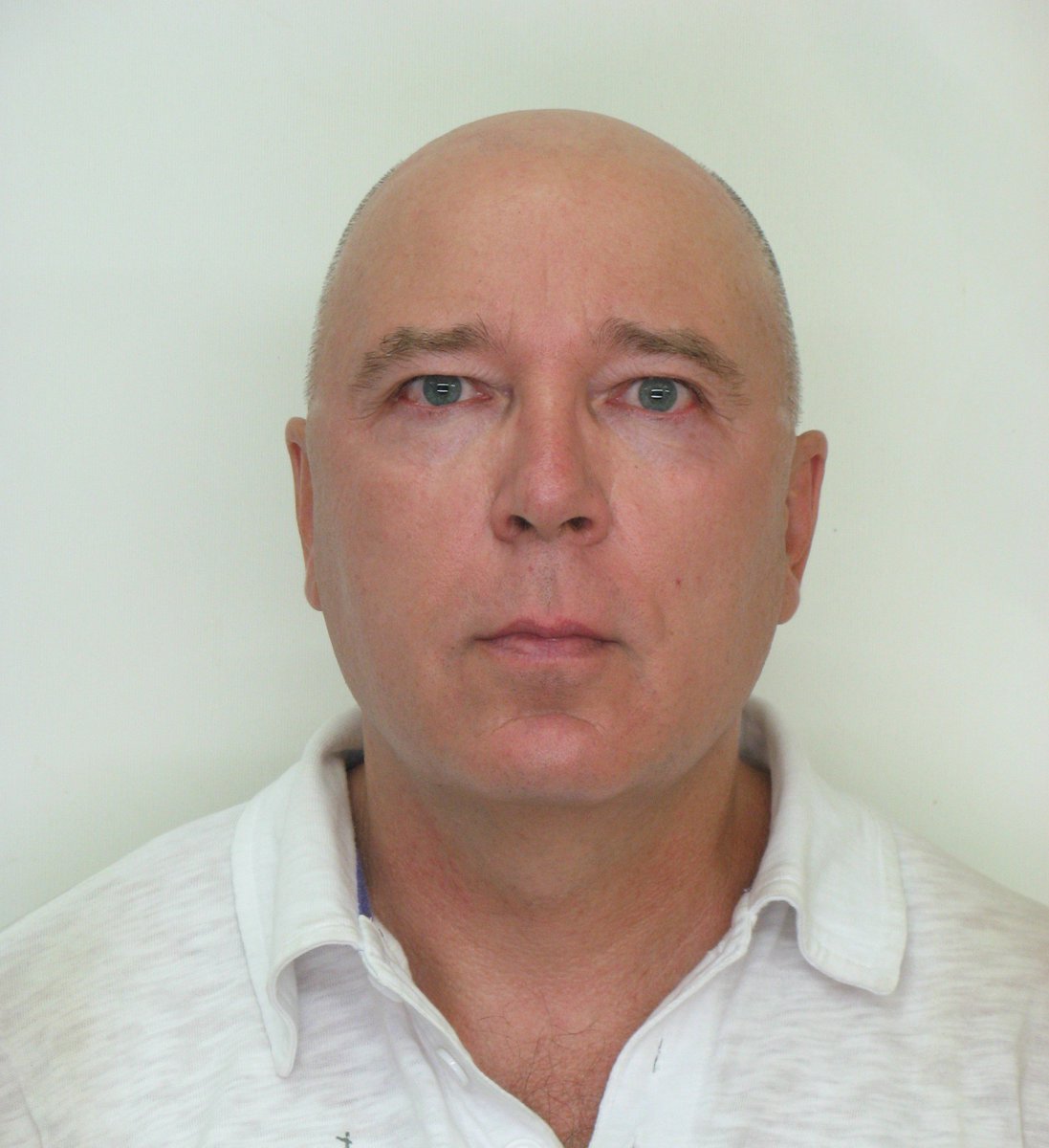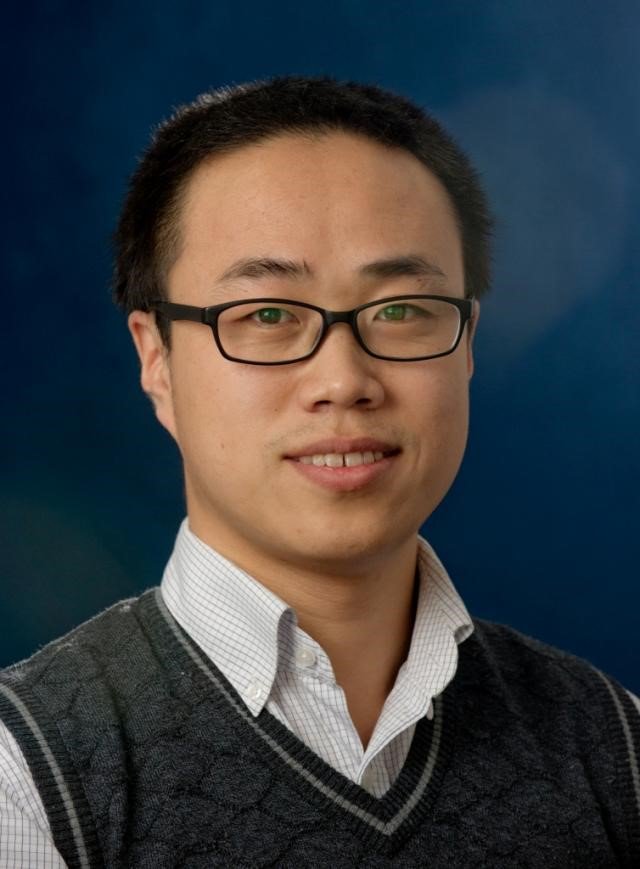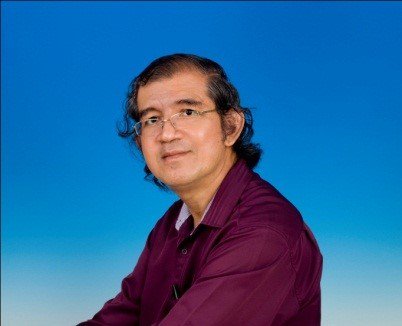COMPSE 2018 KEYNOTE SPEAKERS



Prof. Igor Litvinchev Dr. Xueguan Song Dr. Pandian Vasant

Igor S. Litvinchev received his M.Sc. degree in Applied Mathematics from Moscow Institute of Physics and Technology (Fizteh), Ph.D. and Dr.Sci. (Habilitation) degrees in systems modeling and optimization from Computing Centre, Russian Academy of Sciences (CCRAS), Moscow. He had visiting positions at universities in Brazil, Mexico, and Norway, as well as positions at various universities and research centers in Russia. He is currently a Professor at Nuevo Leon State University (UANL), Mexico and a Head of Department at CCRAS, Russia. His research focuses on large-scale systems modeling, optimization, and control. He is (co-) author of 4 books published by editorials Kluwer and Nauka, and more than 60 journal papers. He was a coordinator for more than 30 research projects funded by NATO Scientific Affairs Division and European Community; CNPq and FAPESP (Brasil); CONACYT, PROMEP and PAICYT (Mexico); ISF(USA), RFBR (Russia), BRFBR (Belarus). Dr. Litvinchev is a member of Russian Academy of Natural Sciences and Mexican Academy of Sciences.
‘Packing Problems: Models and Solutions‘
Abstract
Packing problems generally consist of packing a set of items of known dimensions into one or more large objects or containers to minimize a certain objective (e.g. the unused part of the container or waste). Packing problems constitute a family of natural combinatorial optimization problems arising in computer science, industrial engineering, logistics, manufacturing and production, physics and medicine. An overview of modeling and optimization techniques for packing problems is presented. The talk begins with a brief introduction to packing problems and corresponding applications, followed by the discussion of mathematical models and solution techniques.

Dr. Xueguan Song received the BSc degree in mechanical engineering from Dalian University of Technology, China, in 2004 and the Ph.D. degree in Mechanical Engineering from Dong-A University, South Korea in 2010. He is currently a professor in the School of Mechanical Engineering at Dalian University of Technology and the “Thousand Young Talents Program” Scholar of China. His current research interest includes multidisciplinary design optimization and big data analysis.
Dr. Song has published over 70 peer-reviewed journal/conference papers with more than 500 citation, 1 book and 2 book chapters in the field of engineering optimization and computational simulation (FEM, CFD). He is the recipient of best paper award at LDIA’13 Conference, best poster awards at CSO 2011 and PCO’2010 Conferences and honorable mention award in the PHD student paper symposium and competition at the 2010 ASME PVP Conference. Dr. Song was session chairmen of the 8th International Conference on Intelligent Robotics and Applications in UK (2015), the 14th International Conference on Pressure Vessel Technology in China (2015), the WSEAS International Conference in China (2010), the PCO International Conference in Thailand (2008) and the associate editor of Journal of IET Power Electronics (SCI).
‘A Robust hybrid surrogate model for Simulation-based design optimization’
Abstract
Surrogate model is an efficient substitute for high-fidelity computational simulation in engineering design and optimization as it overcomes the high computational cost of simulation. However, it is a tough subject to select an appropriate surrogate model among existing models for a specific problem. This talk highlights our most recent research results in an adaptive hybrid surrogate model, which can automatically select appropriate surrogate models from a set of individual surrogate models, and assign adaptive weights for each one to constitute a robust hybrid model. We validated our hybrid model by using over 40 benchmark mathematical problems and one numerical problem, the results show that the proposed hybrid model outperform most of existing individual surrogate models and hybrid surrogate models in the predictive capability and the robustness.

Pandian Vasant is a senior lecturer at Department of Fundamental and Applied Sciences, Faculty of Science and Information Technology, Universiti Teknologi PETRONAS in Malaysia. He holds PhD (UNEM, Costa Rica)in Computational Intelligence, MSc (UMS, Malaysia, Engineering Mathematics) and BSc (Hons, Malayan University (MU), Malaysia) in Mathematics. His research interests include Soft Computing, Hybrid Optimization, Holistic Optimization, Innovative Computing and Applications. He has co-authored research papers and articles in national journals, international journals, conference proceedings, conference paper presentation, and special issues lead guest editor, lead guest editor for book chapters’ project, conference abstracts, edited books , keynote lecture and book chapters (161 publications indexed in SCOPUS). In the year 2009, Dr. Pandian Vasant was awarded top reviewer for the journal Applied Soft Computing (Elsevier) and awarded outstanding reviewer in the year 2015 for ASOC (Elsevier) journal. He has 25 years of working experience at the various universities from 1989-2016. Currently he is Editor-in-Chief of IJCO, IJSIEC, IEM, IJEOE and Editor of GJTO. H-Index SCOPUS Citations = 35, H-Index Google Scholar = 22.
‘Artificial Intelligence and its application in Oil and Gas Industry’
Artificial Intelligence (AI)-based technology has had an impact on the way that exploration and production companies discover and model oil reserves. Advanced imaging technologies continue to play the most important role in identifying drilling locations. However, in most instances, specific pressure, volume, temperature and permeability characteristics of the reservoir can be obtained only by drilling test or pilot wells.
Fuzzy logic, Evolutionary Swarm Intelligence and Hybrid Neuro-Fuzzy Genetic Algorithms are an AI-based technique used for prediction, forecasting and reasoning when information is unreliable, imprecise and/or incomplete. This makes it particularly useful for filling information gaps during reservoir characterization. It also has become increasingly common in other engineering control applications in the energy industry where input parameters are highly variable. These uses include enhanced recovery, well stimulation and infill drilling.
The use of AI-related technologies in oil and gas does not stop with exploration and production, as many operators in the petrochemical refining sector now rely on predictive analytics and model predictive control to continuously improve the overall performance of their facilities and more effectively maintain equipment.
Although an increasing number of oil and gas companies are embracing AI-based technology, the industry as a whole still lags many others when it comes to fully leveraging its data. Breaking down information silos and making data more available to key decision-makers across various disciplines will be integral to improving this situation in coming years. Decision making support systems will play a significant role in making smart decision in an unpredictable environment in oil and gas industry.






































